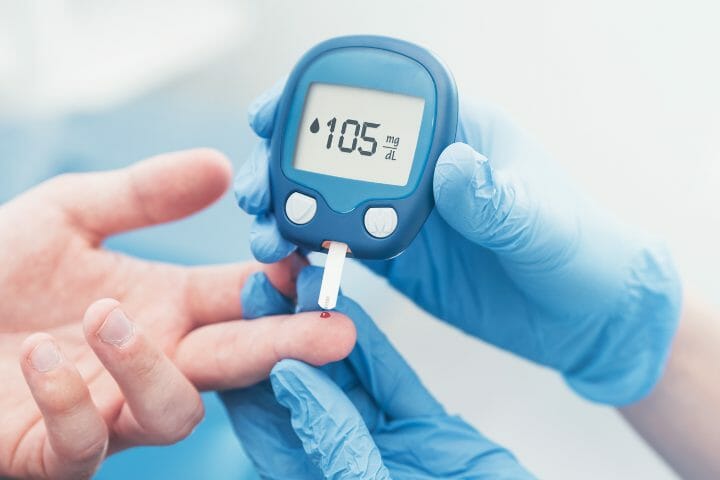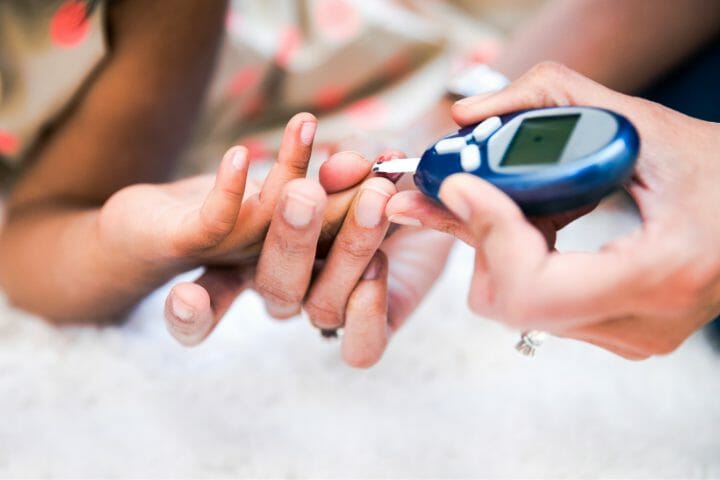People with Type 1 diabetes are often confused about which supplementsto take. Let’s look at some clinically verified supplements for Diabetes Type 1.
Contents
To cut down the daily doses of insulin treatment, many patients with type 1 diabetes often resort to supplements. The use of dietary supplements like multivitamins, minerals, or natural herbs among diabetes patients is increasing.
This increase in demand for supplements is also driving their commercial availability. To be precise, about 77% of North Americans use dietary supplements today. This is an alarming trend, because knowledge about the constituents of these supplements and which ones are right for what diseases is sketchy at best.

In this article, we will guide you the use of safe supplements for diabetes type 1 backed by relevant studies. Additionally, we will help you understand the impact of natural cures for diabetes and what to avoid.
Vitamin D Supplementation For Diabetes Type 1
Are Claims About Vitamin D Supplementation For Type 1 Diabetes True?
Keeping the data given by researchers in mind, Vitamin D supplementation can reduce the risk of Type 1 diabetes. Particularly in the U.S., where 5% of 25.8 million people constantly struggle with unstable blood sugar levels.
About 210,000 young adults and children below the age of 20 years have Type 1 diabetes. Diabetes in early adulthood results from a lack of Vitamin D. specifically in areas where the main source of Vitamin D (sunlight) is scarce.
There is a clear linkage between diabetes and Vitamin D deficiency. The main cause is that the receptors in the pancreas function only in the presence of sufficient vitamin D levels in the body. Having adequate Vitamin D ultimately regulates glycemic control and improves insulin sensitivity.

Do Clinical Studies Support This Belief?
As per the recent findings, researchers asked about 8 million U.S. military personnel to provide blood samples for analyzing the case of diabetes. As per the result, about 615 people were diagnosed with type 1 disease after comparing their blood samples.
Moreover, the findings conclude that Non-Hispanics with high levels of vitamin D serum have less risk of diabetes than those with low levels of Vitamin D.
Types of Vitamin D Supplements Available in the Market:
The two most widely accepted vitamin D supplements have proven results to reduce the risk of type 1 diabetes.
- Ergocalciferol or Vitamin D2
- Cholecalciferol or Vitamin D3
You might also like to read: Do You Need Vitamin Supplements With Age?
Which One is The Most Effective Between Vitamin D2 or D3 Supplements?
Ergocalciferol is considered better.
Ergocalciferol is a joint dietary supplement that fulfills the body’s shortfall of Vitamin D levels. It helps your body regulate the flow of calcium and phosphorous, making them bind together for a healthy body function.
Apart from being beneficial for other medical conditions, the supplement is efficient for healing diabetes. As per a source, the use of Ergocalciferol is highly effective for people in the early stages of type1 diabetes.
The beta-producing cells in the pancreas produce insulin, a hormone that regulates the glucose levels in the body. However, incidences of significant drops in vitamin D levels hinder the ability of these cells.
For this reason, Ergocalciferol sustains the beta cells, maintaining accurate blood sugar levels and improving glycemic control. As per a short-term study, scientists conducted a clinical experiment on 18 patients aged between 10 and 21 who suffered early-stage diabetes.

For 12 months, these members received 50,000 IU of Ergocalciferol once a week for two months. After that, the consumption was reduced to once per two weeks for the next ten months.
As a result, the supplement was found helpful in reducing the higher levels of glucose indigestion, decreasing the progression of Type 1 disease.
Is Chromium Safe For Type 1 Diabetics?
Chromium is a safe supplement for reducing impaired glucose tolerance. Various researches and studies have already shown mixed results. While some studies show that Chromium effectively alleviates only type 2 diabetes, others favor the use of Chromium for both type 1 and type 2 diabetes.
Chromium is one of the micronutrients absorbed by the body through food and various other supplements. The supplement is a powerful nutrient that maintains glucose levels and improves insulin metabolism. Significantly, the loss of adequate chromium levels leads to diabetes.
For this reason, experts conducted three studies on both animal and human models to analyze the effects of ChromiumChromium on diabetes treatment.
One study shows that low doses of chromium supplementation have been effective in reducing teh symptoms of diabetes. Over 68 people in this trial were given ten days of treatment with equal 200 grams per day dosages.
Likely, the supplement was found helpful for increasing insulin sensitivity. Additionally, the ChromiumChromium allowed patients to limit the use of other oral medicines or insulin doses.
Types of Chromium Supplements:
- Chromium Picolinate
- Chromium Chloride
- Chromium Nicotinate
- Chromium Chelate
- Chromium Citrate
Out of the many available forms, Chromium Picolinate is known as a safety measure as humans quickly absorb it.

Is There Any Natural Way To Obtain Chromium?
Yes. Possibly, foods containing Chromium-based minerals fill the gap of chromium deficiency. However, the requirement remains limited.
Since the body requires minimal amounts of Chromium, the adequate intake remains between 21 to 25 micrograms a day for females and 25 to 35 micrograms per day for men.
Foods That are Rich in Chromium:
- Broccoli
- Grape Juice
- English muffin
- Green beans
- Red wine
- Mashed potatoes
You might also like to read: Memory Supplements For Seniors: Fad Or Do They Work?
Is There Enough Evidence to Support The Use of Vanadium?
The studies evaluating the use of vanadium supplements are limited for the final decision. Out of these findings, it is safe to consider that vanadium is beneficial for both type 1 and type 2 diabetes.
Vanadium is a newly found vitamin that helps to lower blood sugar levels. With advanced safety usage, supplements like vanadium are likely to control the spike in fatty acids.

Apart from monitoring the blood sugar levels, the forms of vanadium also treat insulin sensitivity, metabolize lipid and amino acids, and are a cure for the thyroid.
A report indicates a study where fourteen diabetic type one patients were administered oral vanadyl sulfate. After 30 days, vanadyl successfully reduced the daily doses of insulin and cholesterol levels to a helpful extent.
Are Natural Herbs True To Their Claims?
The use of natural herbal medicines is questionable regarding safety and limited data. Also, no support from the American diabetes association and similar organizations clarifies that one should not always rely on natural products.
You might also like to read: Six Important Folic Acid Benefits For the Elderly
What Kind of Supplements Should One Avoid?
Natural herbal remedies are not a cure for the treatment or prevention of the risk of diabetes. However, one should always be aware of using any of these alternative medicines that can interfere with the treatment of diabetes.
What To Avoid:
- Cinnamon
- Polyphenol
- Ginseng
- Bitter melon
- Fenugreek
- Turmeric
- Milk thistle
Frequently Asked Questions
#1 Is Zinc Good for Type 1 Diabetes?
Zinc is known to have a beneficial effect in controlling and modulating glycaemic control for people with diabetes. Studies also claim that diabetic patients have more zinc in their urine than in their bloodstream.
Consuming zinc can help remove the deficiency in the bloodstream. A daily intake of 8-11 mg a day is considered beneficial for people with diabetes.
#2 How Can I Make My Type 1 Diabetes Go Away?
There is no cure for diabetes, irrespective of age, gender, and ethnicity. More specifically, when we talk about people with type 1 diabetes.
As per what is being studied, type 1 disease is rare and occurs only in children and adolescents. While the disease symptoms remain the same, it is still not as severe as Type 2 disease.
#3 What is the Magic Fruit for Diabetes?
The term magic fruit is often misinterpreted by people as some kind of a cure all, but it is not. As per some reports, magic fruits like berries have dramatically reduced the instances of sugar spikse in diabetics. However, this does not mean that these fruits are a cure.
#4 What Multivitamins Can Diabetics Take?
Generally, diabetes makes a drastic impact on vitamins absorbed by our body. MultiVitamins like Vitamin C, Vitamin D, Folic Acid, and Vitamin E can help prevent the spread of diabetes.
However, it is always advised that a person with diabetes should eat multivitamins in limited quantities. So, one should also check if the multivitamin has a maximum 100%-150% daily value for each nutrient.
You might also like to read: Best Zinc Supplements For Seniors
A Few Final words
No matter what type of supplements you consume, it is always safe to make your doctor aware of your intake of any dietary supplement. Many supplements have specific ingredients that may not work for everyone.
Your doctor would be able to guide you with possible side effects, false claims, and doses of these supplements.
Please share the knowledge with someone who may benefit from the information about the use of supplements for type 1 diabetes. Moreover, please spare some time to help us improve by giving your feedback in the comments section.
